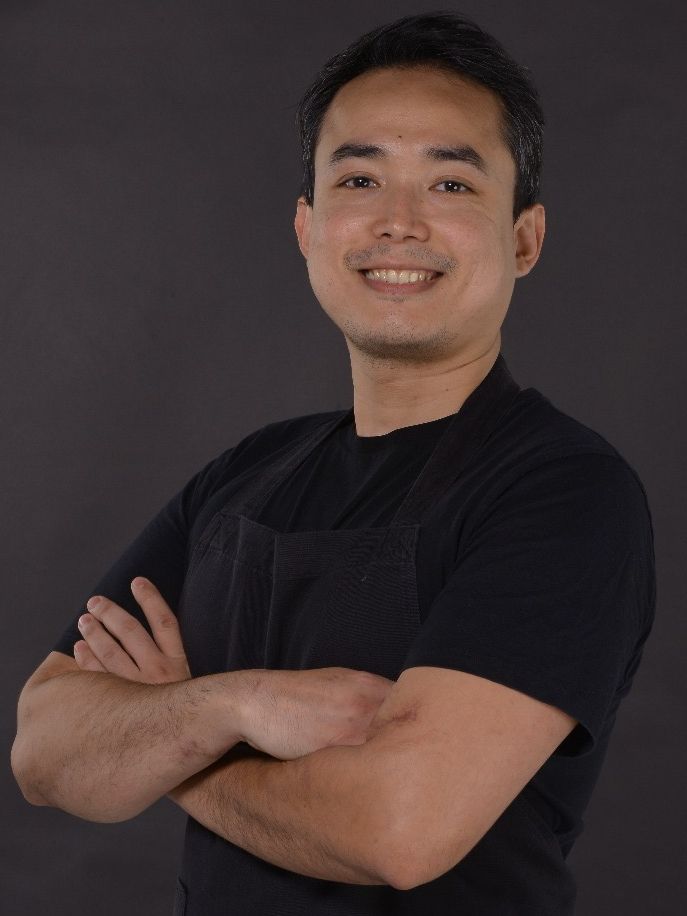
Rajiv Devnani, Head Chef at Matagi & Sola at Raffles The Palm

For this edition of the For Starters Interview Series, we heard from Rajiv Devnani, Head Chef of Matagi and Sola at Raffles The Palm. He shared his thoughts on the importance of world-class yet home-grown concepts, digitising processes to operate more sustainably and staying true to traditional cooking methods.
Please introduce yourself, your professional role and your company.
Hi, my name is Rajiv Devnani, I have been in Dubai for almost 10 years and I am currently the Head Chef of Matagi and Sola at the Raffles the Palm.
In your role, what does a typical day involve?
My role involves Keeping the menu up to date on the current trends, ensuring the freshest and highest quality produce is used for each menu item and developing future talent in the industry.
A day would consist of meeting suppliers, briefings, chefs’ meetings and preparations for upcoming service and events.
What’s the biggest change/s you’ve seen in the industry during your professional culinary career?
There is a huge step forward in the industry, starting with having Sanpelligrino and Michelin dining guides now including Dubai as a destination for great food and drinks. Also, there are a lot more globally renowned chefs developing concepts here and elevating the food scene even further. The best thing so far is the number of seriously good home grown chefs and restaurants popping up around the city that educate us with their food and culture.

What trends are you currently seeing in the culinary and hospitality sector?
I believe the biggest trend is the increase in home-grown concepts and chefs in the city showcasing their experience and talent. It is such a breath of fresh air to have smaller and more approachable restaurants, but still have world-class food and experiences.
How does a restaurant or hotel set itself apart in such a competitive environment?
Dubai is well known to be extremely competitive with many restaurants and hotels opening and closing every year. Keeping relevant with trends and marketing to the correct demographic is important, but most of all it's about building relationships with your clients and guests to keep them returning and sharing word of mouth. The Arabic culture is very warm and we enjoy great hospitality - this is what places should strive for.
What are the most important considerations when planning and equipping a hotel/restaurant kitchen?
I think you have to know how big you want your menu and how large your operation will be before planning. Ideally about 40% of the restaurant should be kitchen space in order to have sufficient area to organise and prep, as well as to accommodate a larger team.
In what ways do you see technology reshaping the foodservice equipment market? How does tech-enablement support your operations?
Technology is always great and it helps us learn new ways to operate. One of the ways is in assisting us with food safety via automated date labeling systems and digitised recordings. Many big hotels and chains have also shifted to digitised systems for taking orders, tickets and payments, which will reduce paper consumption and efficiency. However, in terms of cooking, I believe the trend is going the other way. More concepts and chefs are striving to use traditional methods of cooking, using natural wood, coals and pits instead of fancy gadgets.
In Matagi, we take pride in cooking over coals and wood. We utilise the Japanese robata, a Bertha oven and a large charcoal grill for cooking, flavouring and many of our preparations.

How are you incorporating sustainable practices into your kitchens?
Here at Raffles The palm, we have strict guidelines to ensure food and natural resource waste is reduced. In Matagi and Sola in particular, we use many locally sourced products, from vegetables and herbs to seafood. The team will use all the bones, trimmings from herbs and vegetables to produce sauces and glazes. For example, leftovers of sushi rice that we cook daily are used to make crackers and served at the bar and in other dishes. There is so much more we can do and as the industry progresses in this direction, we will understand more and share ideas to further reduce waste in the future.
What are your thoughts on GulfHost as a foodservice and hospitality event?
GulfHost have been very helpful in connecting people from the industry as well as educating us to make informed decisions in sourcing quality products and services. I believe having the event in the region has helped push towards a better future for the F&B industry.
)
)
)
)
)
)
)
)
)
)
)
)
)
)
)
)
)
)
)
)
)
)